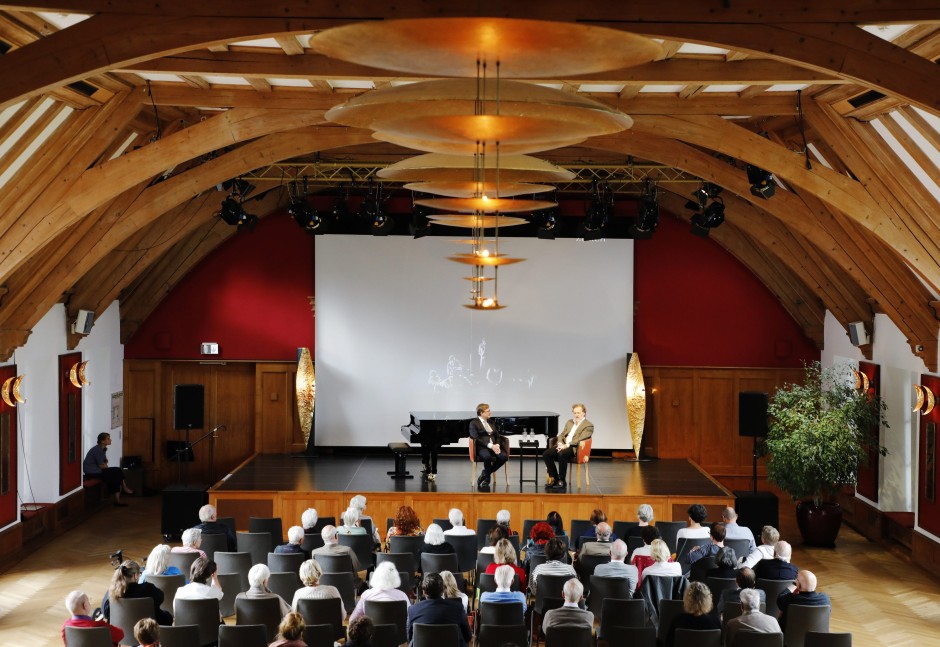AForeign Minister Annalena Baerbock (Greens) stressed the importance of the partnership between Germany and Kazakhstan on Monday in the Kazakh capital of Astana. In view of the fact that the tremors of the Russian war against Ukraine are also being felt in Central Asia, it is all the more to be acknowledged “that Kazakhstan has not sided with Russia”. Kazakhstan have repeatedly shown their composure in difficult situations in recent months, for which they have “great respect”, said Baerbock.
Baerbock had previously spoken to her counterpart Muchtar Tleuberdi at the State Department. In the joint press conference, Tleuberdi praised the exchange with Baerbock as “fruitful and trusting”. It was noted “with satisfaction” how high the level of dialogue was.
Baerbock traveled to Kazakhstan on Sunday to strengthen Germany’s connection with Central Asia; the minister wants to travel on to Uzbekistan on Monday evening. Before leaving, Baerbock said it was important to her that the Central Asian states “not only have the choice between the tight straitjacket in the forecourt of Russia and dependence on China”. She wanted to “above all listen to what hopes and expectations people have of Europe in this situation”. The minister will be accompanied by a German business delegation that will focus on energy and infrastructure.
A new situation: Russia’s military is distracted and weaker than expected
Relations with Kazakhstan have become more important to Germany, both politically and economically, since the start of the Russian war against Ukraine. As a former Soviet republic, Kazakhstan is closely linked to Russia; however, since becoming independent in 1991, the country has been striving for equally good foreign policy relations with China, Europe and the United States. For a long time, Russia was seen as a guarantor of security in the region; in January, for example, Putin’s troops helped the Kazakh president bloodily crush a popular uprising.

Annalena Baerbock in Astana with Kazakhstan’s Foreign Minister Muchtar Tleuberdi
:
Image: dpa
The situation changed with the war in Ukraine. Russian military distracted and weaker than expected; What’s more, Kazakhstan fears that it will be on Putin’s list of countries that he intends to add to his empire in the near future. President Kassym-Jomart Tokayev has repeatedly distanced himself from Putin in recent months, for example by deciding in June that Kazakhstan would not recognize the eastern Ukrainian separatist entities in Donetsk and Luhansk as independent states. In this situation, China could try to expand its influence in the region. Baerbock and other European politicians are now trying to strengthen Kazakhstan’s ties to Germany and Europe. The President of the European Council, Charles Michel, traveled to Kazakhstan last week. After meeting Tokayev, he emphasized that Europe and Central Asia were getting closer and more connected than ever.
Germany’s most important trading partner in Central Asia
Kazakhstan is also becoming more important for Germany economically. It has plenty of wind and sun, plus plenty of space for solar panels – and it aims to become one of the largest exporters of green hydrogen. Kazakhstan thus plays a significant role in German considerations on the energy transition. Conversely, Germany could help to provide the necessary technology for the energy transformation that Kazakhstan is striving for in its own country – they want to be CO2-neutral there by 2060 – and support the country in training specialists. Kazakhstan is by far Germany’s most important trading partner in Central Asia.
The fact that Baerbock combines the offer of economic cooperation with the insistence on respect for human rights is also shown by their program in Kazakhstan. In addition to talks with the Foreign Minister and the President, meetings with representatives of civil society, the Ombudsman for Human Rights in Kazakhstan and the head of the OSCE program office there are also on the agenda. The pictures of the dead and injured from January shocked many people in Germany, said Baerbock at the press conference with her Kazakh counterpart. Clarifying what happened is important. “Your country is pursuing an ambitious path,” said the German minister. “But this path is worth it.” Germany will be at Kazakhstan’s side as a partner.













